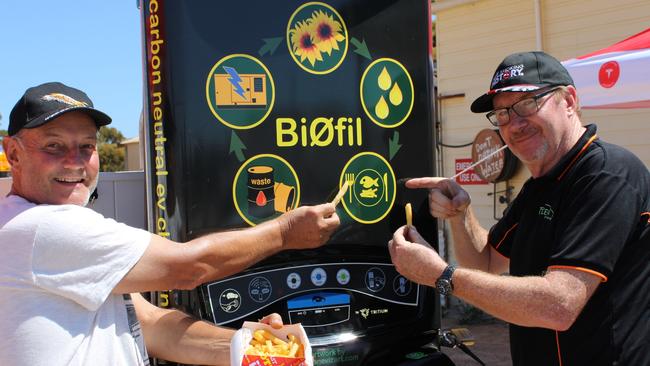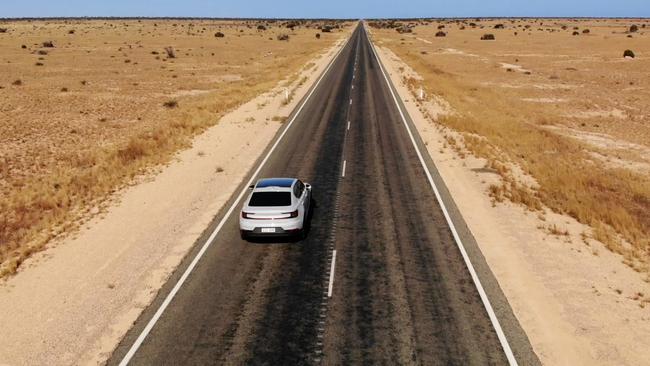Electric vehicles will soon be able to cross the Nullarbor, powered by cooking oil
Assuming we can ever cross the Nullarbor again to get to Western Australia, a series of charging stations will mean electric vehicles can run the whole distance.
SA News
Don't miss out on the headlines from SA News. Followed categories will be added to My News.
Electric vehicle owners will find it easier to traverse the full length of the Nullarbor – as soon as the West Australian government throws down the welcome mat.
Until this month, there were no fast-charging stations for EV owners to refuel along about 720km of desolate highway. It meant they could only recharge at their motel or caravan park stops overnight, after exhausting their vehicle’s power, which lasts for about 350km.
But now eco-friendly vehicles can power up using energy created from the waste oil that comes from preparing a road trip staple – fried food such as fish and chips.
An EV fast-charging station has just been installed in Caiguna Roadhouse, 370km west of the South Australian border.
Retired engineer Jon Edwards created the non-profit BiØfil charging system, with the new station paving the way for EVs to cross the great expanse on the Eyre Highway.
The chip oil used in deep fryers comes from seed crops such as canola and sunflower, which absorb the CO2 and sunlight to make their oil.

“BiØfil extracts the energy from the waste product to charge EVs using a generator (and) the CO2 produced is the same as the CO2 absorbed, so the process is net zero,” said Mr Edwards, now based in Perth but originally from SA.
Two other slower chargers have also been installed at other pit stops using roadhouse power supplies in Balladonia and Madura, on either side of Caiguna.
But South Australians still have a wait ahead of them to journey across the Nullarbor, with WA Premier Mark McGowan this week announcing borders would not open from February 5, as flagged.
BiØfil was initially developed as a carbon-neutral way to charge a Tesla racing car, and 14 EVs this month journeyed to Caiguna for the installation.
BiØfil and the University of Western Australia are running a crowd-funding campaign in a bid to reduce the number of gaps in the fast-charging network along the Nullarbor.
More Coverage






